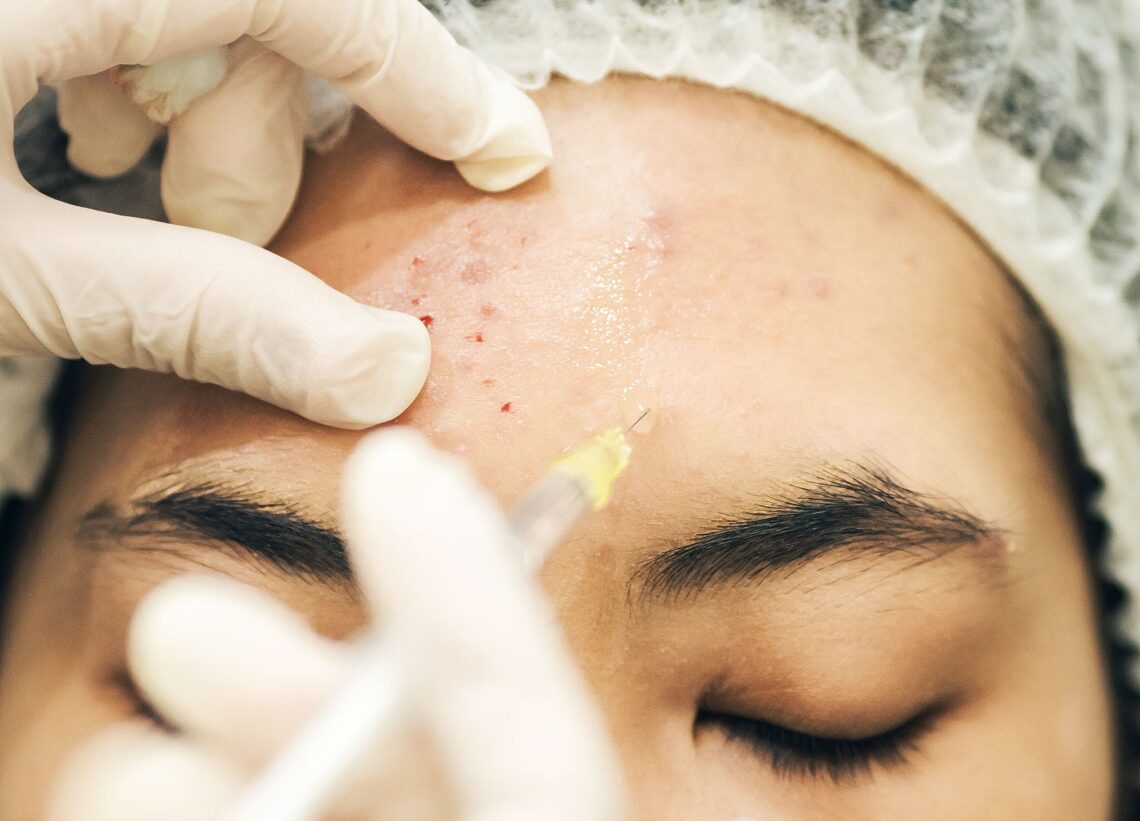Acne is an embarrassing and painful condition that affects millions of people, from teens to adults. But is there a solution that provides a quick fix? Botox, a popular cosmetic procedure, has been increasingly used to treat acne. In this article, we explore how Botox can help treat acne and the risks associated with it.

Can Botox Treat Acne?
Acne is a common skin condition that affects people of all ages. It is characterized by red, inflamed pimples that can be painful and cause scarring. Many people have tried various treatments to clear up their acne, but few have considered using Botox. Botox is a popular cosmetic treatment that is used to reduce wrinkles and other signs of aging. But is it also effective in treating acne? This article will explore the potential of Botox to treat acne.
What is Botox?
Botox is an injectable form of botulinum toxin, a substance produced by the bacterium Clostridium botulinum. It works by blocking the release of the neurotransmitter acetylcholine, which is responsible for muscle contractions. By blocking the release of acetylcholine, Botox can relax the muscles of the face and make wrinkles less visible. It has become a popular cosmetic treatment in recent years, but can it also be used to treat acne?
How Botox Might Help Acne
Studies suggest that Botox can help reduce the amount of sebum, or oil, produced by the skin. Sebum is a major factor in the development of acne, as it can clog pores and lead to the growth of bacteria. By reducing the amount of sebum produced, Botox may help reduce the severity of acne. In addition, Botox may help reduce inflammation in the skin, which can also help reduce the symptoms of acne.
Potential Side Effects of Botox for Acne
As with any medication, there are potential side effects associated with Botox. The most common side effects are redness, swelling, and bruising at the injection site. Other potential side effects include headache, nausea, and dry skin. It is important to consult a doctor before starting any treatment for acne, to ensure that it is safe and effective.
Who Should Not Use Botox for Acne?
Botox is not recommended for individuals with certain medical conditions, such as those with a weakened immune system, pregnant women, and people with certain skin conditions. It is also important to consult a doctor before using Botox if you are taking any medications, such as antibiotics or steroids.
Conclusion
While Botox has been used to treat wrinkles and other signs of aging, it may also be effective in treating acne. Botox can help reduce the amount of sebum produced by the skin, as well as reduce inflammation. However, it is important to consult a doctor before starting any treatment for acne, to ensure that it is safe and effective.
Frequently Asked Questions
What is Botox?
Botox is a cosmetic injection made from a purified form of botulinum toxin, a neurotoxin produced by bacteria. It is primarily used to reduce wrinkles and lines on the face, and is sometimes used to treat a variety of medical conditions, such as migraines, excessive sweating, and muscle spasms. Botox works by temporarily blocking nerve signals to the muscles, causing them to relax and reduce the appearance of wrinkles.
Can Botox Help Acne?
Yes, Botox can help improve the appearance of acne. Botox injections relax the muscles in the face, which can help reduce the appearance of acne scars. Botox can also reduce the production of oil, which can reduce the occurrence of acne breakouts. Additionally, Botox can help reduce inflammation and redness associated with acne.
How long does Botox take to work for acne?
The effects of Botox for acne can take anywhere from 3 to 14 days to become noticeable. However, it is important to note that the results of Botox can vary from person to person, and may not be permanent.
Are there any side effects of using Botox for acne?
Yes, there are some potential side effects associated with using Botox for acne. These can include pain or swelling at the injection site, bruising, headache, and mild nausea. Additionally, the use of Botox for acne can result in a temporary droop in the eyebrows or eyelids.
Who should not use Botox for acne?
Individuals who are pregnant or breastfeeding should not use Botox for acne. Additionally, individuals who have any type of skin infection or inflammation should not use Botox for acne. It is also important to note that Botox should not be used on any areas of the skin other than the face, as it can potentially cause serious side effects.
How often should Botox be used for acne?
The frequency of Botox injections for acne will depend on the individual and their needs. Generally, Botox injections should be spaced out by at least 4 to 6 weeks. Additionally, it is important to consult with a healthcare professional before undergoing any type of Botox treatment, as they can help determine the best course of action for your individual needs.
Can Botox Treat Acne?
In conclusion, Botox injections can be an effective tool in treating acne. Although the results may not be immediate, the effects of Botox can be long-lasting, and can help to reduce the discomfort and embarrassment caused by acne. Therefore, if you are suffering from acne and are looking for a safe and effective way to treat it, you may want to consider consulting with a dermatologist about whether Botox injections would be right for you.